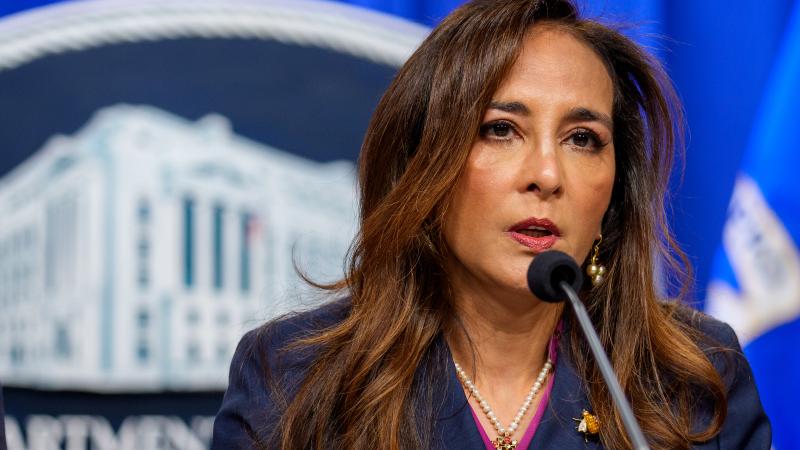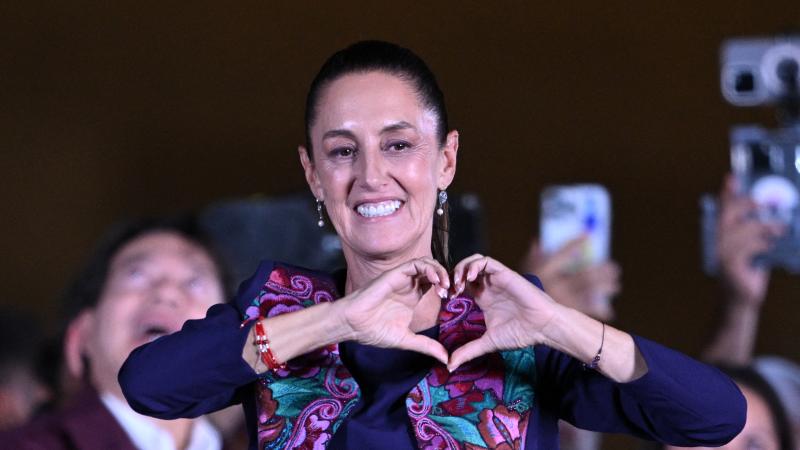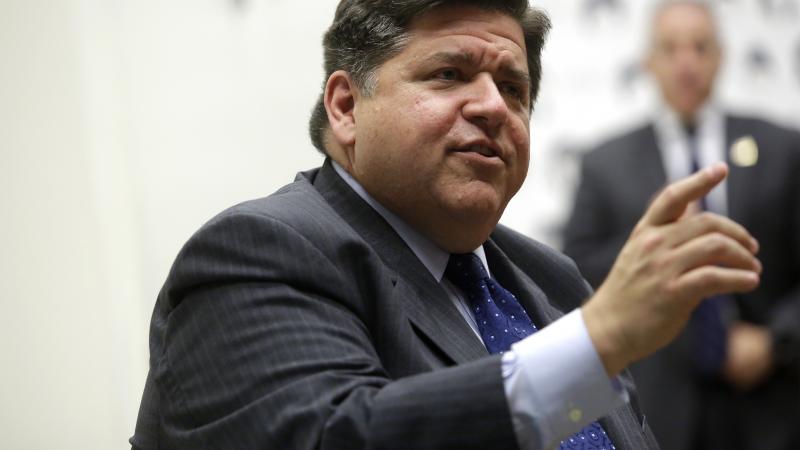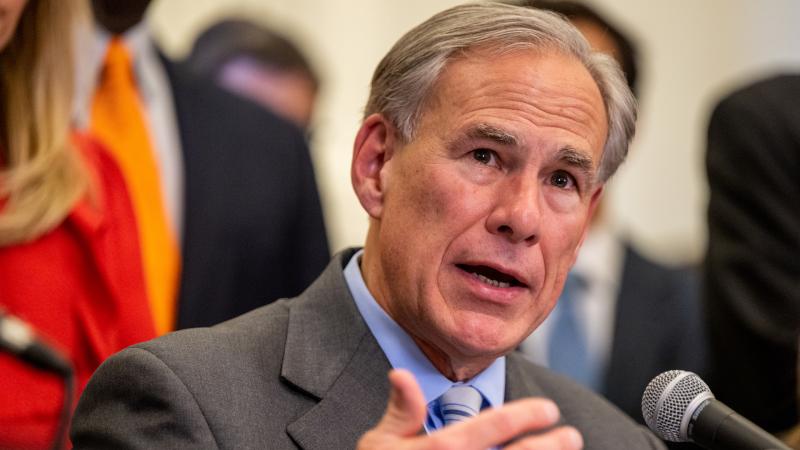DOGE unmasks maddening waste, but may struggle to find permanent spending cuts without Congress
Legislation will be required to make permanent many of the changes DOGE wants.
Elon Musk’s Department of Government Efficiency (DOGE) is delivering powerful anecdotes of wasteful government spending, inefficiencies, and fraud, but will continue to struggle to achieve permanent reductions without an act of Congress.
The DOGE website currently touts about $130 billion in savings spread across nearly every major government agency, at a total of about $807.45 per taxpayer. The effort has boasted some shocking finds, including an old mine shaft where federal employee retirement records are processed entirely by hand, $80 million in “wasted” funds at the Pentagon, and millions in controversial spending at the U.S. Agency for International Development.
However, the real value remains unverified because a significant portion of the savings comes from terminated federal contracts, which may require an act of Congress to permanently end or have already been paid out, some experts say.
“Well, first, I think Doge is good news, bad news. I think what they're doing needs to be done, but I think the way they're going about it has got some fundamental problems,” David Walker, former Comptroller of the United States from 1998 to 2006, told the “Just the News, No Noise” TV show on Wednesday.
“First, they're not doing an audit. They're basically doing a transactional review using artificial intelligence to try to identify possible or probable fraud, waste, abuse and mismanagement,” Walker continued.“ "A lot of the things that they're identifying, quite frankly, are not fraud. They're not illegal. They are differences in policy positions between the last administration the current administration."
When Elon Musk and his DOGE employees swept through USAID to uncover wasteful spending, some foreign aid programs shocked its Republican audience, even though they were on their face legitimate contracts. For example, the aid agency spent $15 million to send contraceptives to Afghanistan, $1 million on LGBT diversity programs in Europe, and received warnings from an inspector general about the danger of funds being diverted to terrorist groups.
Musk promising $1 trillion in cuts
DOGE and the administration have also specifically targeted the size of the federal workforce, with President Trump ordering agencies to develop plans for drastic cuts to their employees' roles. Several agencies have announced workforce cuts in response to that February 11 executive order. For example, the IRS reportedly plans to cut 18,000 employees from its workforce; the Postal Service, 10,000; the Department of Education, 1,300; and the Pentagon, about 50,000 to 60,000.
So far, the claimed savings have fallen far short of Musk’s promise to reduce the total budget deficit by $1-2 trillion total. “I think if we try for $2 trillion, we’ve got a good shot at getting $1 [trillion],” Musk said in a January interview posted on X.
Even after two months of work, his goals have not changed. “I think we will accomplish most of the work required to reduce the deficit by a trillion dollars within [130 days],” Musk told Fox News’ Bret Baier in an interview on Thursday.
Even Make America Great Again allies like popular podcast host Steve Bannon have warned that Musk’s goal is not attainable without legislative cuts to federal spending.
“This is not a smear against DOGE. I love what DOGE is attempting to do, but the waste, fraud, and abuse is not going to be $1 trillion. It’s just not going to be,” Bannon said earlier this month on his “War Room" podcast.
“We’ve got to cut federal spending. It’s driving inflation, it’s driving everything, and I think the numbers are going to rapidly deteriorate, going to rapidly deteriorate and the Democrats are going to use that against President Trump,” he said.
As the end of Musk’s stint as a special government employee fast approaches, the pressure will mount on Congress to implement real cuts to spending levels as part of the broader DOGE initiative across the two branches.
Permanent cuts require congressional action
“[The] truth is that, at best, DOGE is going to make a very modest dent in our huge fiscal gap. We're spending $2 trillion a year more than we're taking in DOGE is going to have a modest impact on that, because the big changes are going to require legislation, and legislation will require bipartisan support in order to be successful and sustainable,” Walker told Just the News.
The House Oversight Committee, which launched its DOGE subcommittee at the start of this Congress, has held hearings to identify and target waste and fraud in government programs, including improper payments in social security and subsidies to partially state-funded media like National Public Radio and the Public Broadcasting Corporation.
Witnesses told one hearing of the Oversight Committee’s Government Operations Subcommittee that Congress could target improper payments in the social security system, like the one highlighted by Musk’s DOGE, by implementing new preventative controls and close loopholes in government databases that make fraud or waste more likely.
“We must address obvious anomalies such as Social Security numbers that have never been issued or issued to people who are now deceased. Dates of birth, indicating an applicant is ten or 110 years old. Applicants who have already applied in five other states or applicants who use names like Charlie Chaplin, Abraham Lincoln or Foghorn Leghorn, as at least three people did in pandemic programs,” Ken Dieffenbach, Executive Director of the Pandemic Response Accountability Committee, testified in a hearing earlier this month.
“The government must pause and more closely review suspect claims before money is dispersed. We must look across multiple programs for red flags as fraudsters do not follow our government organizational charts. They steal from wherever it is easiest to steal,” he continued.
Formal recission process
The Government Accountability Office recently identified $236 billion in “improper payments” government-wide, noting that the total was likely higher when considering unreported programs, a ripe target for Congress.
Senate Republicans have urged the president to use the formal recission process to allow Congress to easily claw back money it previously appropriated under the last administration. Because it is voted on by Congress, the senators tout that the process would also avoid the significant legal challenges that have beset Trump and Musk’s efforts to cut funding from certain agencies.
“What we got to do as Republicans is capture their work product, put it in a bill and vote on it,” Senator Lindsey Graham, R-S.C., told reporters in early March. “So the White House, I’m urging them to come up with a rescission package.”
Senator Rand Paul, R-Ky., said that he had also asked Musk to consider recission bills for cuts to programs or budgets his initiative identified, saying that it would bring budget-conscious Republicans on board. It would “make those of us who are skeptical about reconciliation, adding to the debt, might be a little bit more open to it if we’re actually going to … make the spending cuts real and permanent,” the senator said.
Trump submitted several recessions packages to Congress during his first term, including a 2018 request for $15 billion and a 2021 request for $27.4 billion. So far, the White House has not proposed any packages during the two months of his second administration based on the findings from DOGE. The process only requires a simple majority in the senate, bypassing the usual 60-vote threshold required for legislation in the upper chamber.
The Facts Inside Our Reporter's Notebook
Links
- DOGE website
- an old mineshaft
- $80 million
- controversial
- spending
- Just the News, No Noise
- $15 million to send contraceptives
- $1 million on LGBT diversity programs
- warnings from an inspector general
- announced workforce cuts
- January interview
- Fox Newsâ Bret Baier in an interview
- fast approaches
- improper payments in social security
- subsidies to partially state-funded media
- testified in a hearing earlier this month
- recently identified $236 billion
- allow Congress to easily claw back money
- request for $15 billion
- request for $27.4 billion















